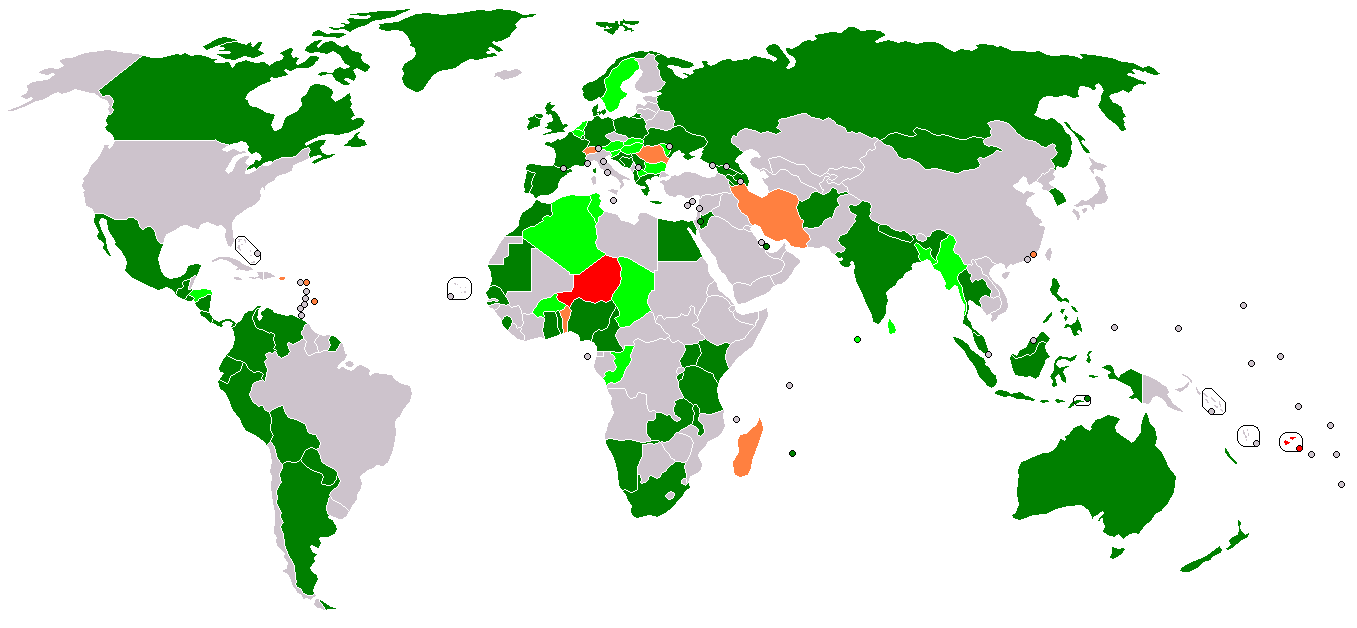|
Commission For Protection Against Discrimination
Commission for Protection against Discrimination (CPD) is the national equality body of Bulgaria. It was created in April 2005 under the Law for Protection against Discrimination with a main objective “to prevent discrimination, to protect against discrimination and to ensure equal opportunities”. The Commission functions in compliance with the Paris Principles and issues legally binding decisions. It can impose fines and compulsory administrative measures. CPD is member of Equinet and holds class B accreditation by International Coordinating Committee of National Human Rights Institutions The Global Alliance of National Human Rights Institutions (GANHRI), formerly known (prior to 2016) as the 'International Coordinating Committee of National Human Rights Institutions' (sometimes shortened to the International Coordinating Committee .... References {{reflist External links Official website of CPD National human rights institutions ... [...More Info...] [...Related Items...] OR: [Wikipedia] [Google] [Baidu] |
Sofia
Sofia ( ; bg, София, Sofiya, ) is the capital and largest city of Bulgaria. It is situated in the Sofia Valley at the foot of the Vitosha mountain in the western parts of the country. The city is built west of the Iskar river, and has many mineral springs, such as the Sofia Central Mineral Baths. It has a humid continental climate. Being in the centre of the Balkans, it is midway between the Black Sea and the Adriatic Sea, and closest to the Aegean Sea. Known as Serdica in Antiquity and Sredets in the Middle Ages, Sofia has been an area of human habitation since at least 7000 BC. The recorded history of the city begins with the attestation of the conquest of Serdica by the Roman Republic in 29 BC from the Celtic tribe Serdi. During the decline of the Roman Empire, the city was raided by Huns, Visigoths, Avars and Slavs. In 809, Serdica was incorporated into the Bulgarian Empire by Khan Krum and became known as Sredets. In 1018, the Byzantines ended Bulgarian rule ... [...More Info...] [...Related Items...] OR: [Wikipedia] [Google] [Baidu] |
Bulgaria
Bulgaria (; bg, България, Bǎlgariya), officially the Republic of Bulgaria,, ) is a country in Southeast Europe. It is situated on the eastern flank of the Balkans, and is bordered by Romania to the north, Serbia and North Macedonia to the west, Greece and Turkey to the south, and the Black Sea to the east. Bulgaria covers a territory of , and is the sixteenth-largest country in Europe. Sofia is the nation's capital and largest city; other major cities are Plovdiv, Varna and Burgas. One of the earliest societies in the lands of modern-day Bulgaria was the Neolithic Karanovo culture, which dates back to 6,500 BC. In the 6th to 3rd century BC the region was a battleground for ancient Thracians, Persians, Celts and Macedonians; stability came when the Roman Empire conquered the region in AD 45. After the Roman state splintered, tribal invasions in the region resumed. Around the 6th century, these territories were settled by the early Slavs. The Bulgars, led by Asp ... [...More Info...] [...Related Items...] OR: [Wikipedia] [Google] [Baidu] |
Paris Principles (human Rights Standards)
The Paris Principles were defined at the first International Workshop on National Institutions for the Promotion and Protection of Human Rights held in Paris on 7–9 October 1991. They were adopted by the United Nations Human Rights Commission by Resolution 1992/54 of 1992, and by the UN General Assembly in its Resolution 48/134 of 1993. In addition to exchanging views on existing arrangements, the workshop participants drew up a comprehensive series of recommendations on the role, composition, status and also functions of national human rights institutions (NHRIs). These built on standards previously adopted by the 1978 Geneva Seminar on National and Local Institutions for the Promotion and Protection of Human Rights’, which produced the ‘Guidelines on the Structure and Functioning of National and Local Institutions for the Promotion and Protection of Human Rights’. The 1993 Paris Principles regulate to the status and functioning of national institutions for the protection a ... [...More Info...] [...Related Items...] OR: [Wikipedia] [Google] [Baidu] |
Equinet
Equinet is the European Network of Equality Bodies. It serves as a professional platform for cooperation, capacity building and peer support amongst Equality Bodies around the legal interpretation and implementation in practice of the EU equal treatment Directives and around the promotion of equality and the elimination of discrimination. National Equality Bodies have been established on the basis of the EU equal treatment Directives. This legislation provides that each Member State shall have (at least) one Equality Body with the power to, among other, give independent assistance to victims of discrimination. The Equality Bodies are specialised authorities whose staff are trained and experienced to handle cases of discrimination. They are empowered to counteract discrimination across the range of grounds including age, disability, gender, race or ethnic origin, religion or belief, and sexual orientation. Equinet is an umbrella organisation for European equality bodies and has n ... [...More Info...] [...Related Items...] OR: [Wikipedia] [Google] [Baidu] |
International Coordinating Committee Of National Human Rights Institutions
The Global Alliance of National Human Rights Institutions (GANHRI), formerly known (prior to 2016) as the 'International Coordinating Committee of National Human Rights Institutions' (sometimes shortened to the International Coordinating Committee (ICC)), is a global network of national human rights institutions (NHRIs) – administrative bodies set up to promote, protect and monitor human rights in a given country. The GANHRI, whose full legal title is the "Global Alliance for National Human Rights Institutions", coordinates the relationship between NHRIs and the United Nations human rights system, and is unique as the only non-UN body whose internal accreditation system, based on compliance with the 1993 Paris Principles, grants access to UN committees. Institutions accredited by the Subcommittee for Accreditation (SCA) of the GANHRI with "A status", meaning full compliance with the Paris Principles, are usually accorded speaking rights and seating at human rights treaty bodies a ... [...More Info...] [...Related Items...] OR: [Wikipedia] [Google] [Baidu] |

